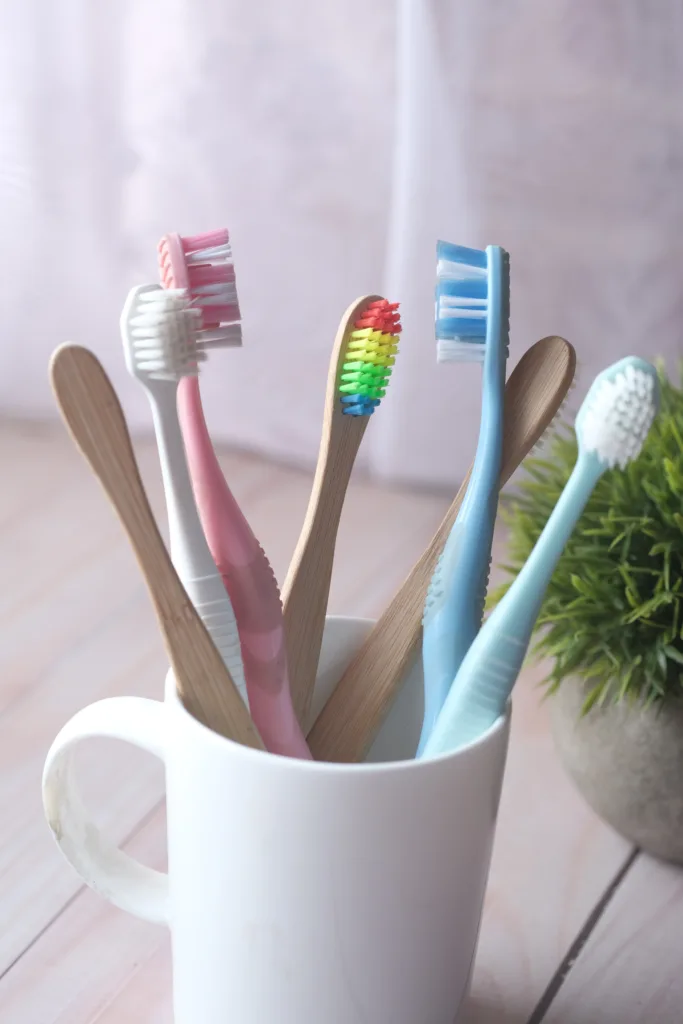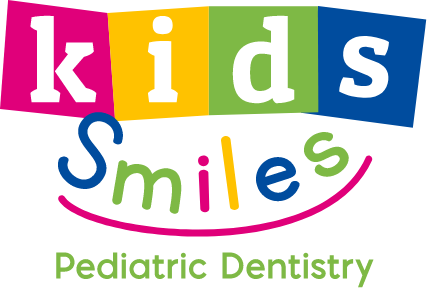Today, we’re diving into the nitty-gritty of toothbrush maintenance. Ever wondered why changing your toothbrush is important for your health? We’re here to spill the beans on why a fresh brush means a fresh smile!
How often to replace your toothbrush
Both the American Dental Association (ADA) and Centers for Disease Control & Prevention (CDC) recommend replacing toothbrushes every 3 to 4 months, or sooner if the bristles get worn.
Why is that? Toothbrushes should be replaced regularly to prevent bacteria/germ buildup, but also to maintain the effectiveness of your toothbrush. When the bristles start to bend in different directions, the brush is not as effective at cleaning teeth and you will leave more bacteria behind. Especially with children who may chew their toothbrush, replacing their toothbrush is key.
Pro tip: It’s a good idea to replace your family’s toothbrushes with each dental cleaning! This ensures that you start off with a sparkly clean toothbrush.
How often should you change your electric toothbrush?
Whether you use a manual toothbrush or electric toothbrush, replace the brush every 3 to 4 months. With an electric toothbrush, you only have to replace the toothbrush head.
Should you change your toothbrush after being sick?
Yes! It’s important that you replace your current toothbrush with a fresh, clean toothbrush after you’re sick. The bacteria that caused your sickness can continue growing within toothbrush bristles and reintroduce the illness back into your body while your body is trying to heal.
Experts advise that you replace your toothbrush once you start feeling better, in order to “make sure lingering bacteria doesn’t lead to reinfection or get passed on to family members” (Cleveland Clinic).
How to store your toothbrush
- Store the brush in an upright position. This helps with proper dry-time and gets the brush out of standing water.
- Keep brushes apart. If you do store brushes together, try to keep the bristles from touching to reduce contamination.
- Rinse toothbrushes with tap water after brushing. This will remove any remaining toothpaste and debris.
- Do not store in closed containers. Keeping your toothbrush covered just aids the bacteria to have the perfect environment.
A word from our dentist
Dr. Frank Sierra adds, “Buying the right toothbrush for your child involves looking at the packaging for the correct age guidelines. We have a blog on that subject too, so take a look.” We also have another best-practice suggestion and recommend having two toothbrushes. The idea is to alternate every time your child brushes as this allows the toothbrush more time to dry between brushings and extends the life of both brushes.
Still have questions?
Please don’t hesitate to reach out to us with any questions!
Our experienced Kids Smiles Pediatric Dentistry team is here to help you and your child develop healthy habits that lead to a lifetime of beautiful smiles. We’re here to give you any oral hygiene tips you need!
We are your trusted pediatric dentist in Tampa Bay and Bradenton! Schedule an appointment with us today!


